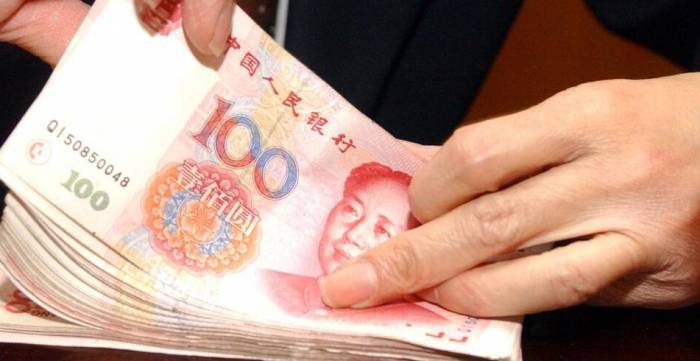Alibaba today is in a period of turmoil.
To counter Pinduoduo's price offensive, Alibaba ultimately chose to follow suit, committing to a low-price strategy as well.
From a revenue perspective, this move seems to have yielded good results: with a revenue of 221.9 billion yuan in the first quarter of this year, an increase of 13.7 billion yuan from last year, representing a 7% year-on-year growth.
However, if we look at the net profit, we get a different result: the net profit was only 919 million yuan, a staggering 96% drop year-on-year.
Compared to the net profit of 45.746 billion yuan in Q4 of 2022, this year's first quarter saw a drastic "ankle cut."
With a 96% plummet in net profit, what exactly happened to Alibaba?
Is the once mighty internet trio BAT really about to be rebranded?
Today, let's discuss these issues.
Writing is not easy, so please like, share, and bookmark.
The plummeting net profit, increasing revenue but not profit, Alibaba gave three main reasons: 1.
Increased investment in e-commerce operations; 2.
Retention incentives granted to Cainiao employees; 3.
The decline in market value of invested listed companies, leading to a decrease in net profit from investment gains and losses.
In summary, less money was earned, more money was spent, and naturally, the profit went down.
Although Alibaba's reasons are clear, unfortunately, the capital market is not willing to buy this performance.
On the day Alibaba released its first-quarter financial report, the stock price plummeted by 6%.
A more serious issue is that if we look at Alibaba's financial reports in recent years, aside from the 13.9% revenue growth in Q2 of last year, all other quarters maintained single-digit growth.
The net profit is even more to the point; this year's first quarter did not even reach 1 billion yuan.
With continuous declining performance and poor stock performance, in the last year, almost every time Alibaba released its financial report, the stock price fell, becoming a routine.
Compared to the peak market value of 824 billion US dollars, now it is less than 188 billion US dollars, having shrunk more than four times.

When Taobao and Tmall were at their peak, sitting steadily on the throne of the domestic e-commerce industry, many people might find it hard to believe that in just a few years, Alibaba would be hit so hard.
But it's not an exaggeration to say that Alibaba's era may really be over.
The internet industry is changing rapidly.
Once leaders in the industry, Alibaba and Tencent are now taking two opposite paths.
On the same day Alibaba released its financial report, another internet giant, Tencent, also released its first-quarter financial report.
But the difference is that Tencent presented an explosive report card.
After the release of the financial report, the stock price soared by 4%.
How strong is Tencent now?
Let's look at a number for a simple impression.
As of March 31 of this year, Tencent's total number of employees was 104,800, with a total compensation of 26 billion yuan.
This means that each Tencent employee's monthly compensation is as high as 83,000 yuan, far exceeding the industry average.
Specifically, in the first quarter of this year, Tencent achieved a total revenue of 159.5 billion yuan, a 6% increase, and the net profit was as high as 41.9 billion yuan, a surge of 62%, a true money-printing machine.
To put it into perspective, Alibaba's net profit of 919 million yuan in the first quarter is just a fraction of Tencent's.
The once internet trio "BAT," Alibaba was not only sitting in the center but also on par with Tencent, with neither side giving an inch.
But what about now?
Is Alibaba's "A" going to be replaced by Pinduoduo's "P," turning BAT into BPT?
Who could have thought that Pinduoduo, once despised by countless people, would one day actually have the potential to defeat Alibaba and take its place.
Holding a hand of top-notch cards, why did Alibaba end up in this situation?
In addition to external environmental factors, there are also internal reasons for Alibaba's own business strategy.
On one hand, the times are developing rapidly, but what remains unchanged is that e-commerce is still a traffic business.
Whoever gets the most traffic has the most brilliant future.
In the past, Alibaba was almost a monopoly in China, so there was no issue of traffic diversion.
Most people would think of Alibaba's system first when shopping online.
But what about now?
With short video platforms chasing and blocking, and ubiquitous live broadcasts bombarding at any time, they have formed a dimensional strike against Alibaba; followed by Pinduoduo and JD.com, who are eyeing the market, Alibaba can't compete with Pinduoduo on price, and can't compete with JD.com on logistics, starting to shake Alibaba's position in the domestic e-commerce industry from the root.
Faced with an increasingly fierce e-commerce market, Alibaba has not yet come up with a truly effective solution.
On the other hand, Alibaba's own operational efficiency may also not be ideal.
Why was Pinduoduo able to rise rapidly?
In addition to viral dissemination methods and various subsidies with low prices, there is also an important point - only refunds.
Although this service has caused countless merchants to criticize, it has also quickly reversed Pinduoduo's reputation.
Even to some extent, it has changed the entire e-commerce industry, and now Taobao and JD.com have chosen to follow suit.
Fortunately, now that Jack Ma has returned, and Joe Tsai has come back to the forefront, Alibaba is changing its own business strategy, embarking on the entrepreneurial path again, and there is still hope.
In conclusion: As internet giants, Tencent is still at its peak, but Alibaba seems to have already set.
Can Alibaba return to its peak in the future?
We look forward to seeing a wonderful reversal.